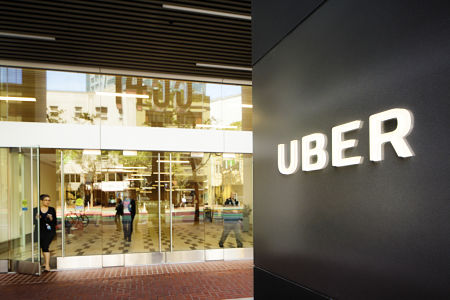The Massachusetts state Senate recently passed legislation that would subject Uber and Lyft drivers to a state background check but falls short of more stringent requirements advocated by the taxi industry and public safety agencies.

The bill now goes to conference committee where the Senate and House will attempt to come up with a compromise bill.
The bill includes a 10-cent per ride assessment that would go to state coffers.
“I think it still strikes a big balance,” said Senator Jamie Eldridge, who reminded his colleagues that the ride-hail services are extremely popular.
The bill seeks to regulate the companies under the Department of Public Utilities and has drawn attention for the army of lobbyists engaged by Uber and Lyft, a tactic that has paid off handsomely in other states.
Chris Taylor, general manager of Uber Boston, commended senators for “their deliberative and open process that led to a significant step forward for innovation, transportation and economic growth for communities across the Commonwealth.”
Chelsea Wilson, a Lyft spokeswoman, said the legislation “expands consumer choice, encourages innovation and ensures passenger safety in the Commonwealth.”
Taxi and livery industry supporters decried the legislation, saying it was “lacking in public safety provisions.”
“No FBI background checks. No license plates denoting the purpose of the vehicle. No insurance commensurate with level of coverage needed for the trips driven every day,” said Scott Solombrino, spokesman for Ride Safe MA. “The public is left vulnerable and unprotected still. This is categorically unacceptable.”
A key provision of the Senate bill would allow ride-hail drivers to continue picking up passengers at Logan International Airport and the Boston Convention & Exhibition Center in South Boston.
The House version would ban Uber and Lyft from picking up riders at both locations for five years, a concession to cabbies by giving them exclusive domain to the popular areas. While Logan Airport currently restricts most drivers from picking up fares there, the House bill would cement the prohibition already in place and make it impossible for the existing regulation to change. The ban at the convention center would be new, and has been criticized by the facility’s operators.
Senator Linda Dorcena Forry proposed an amendment that would have required drivers to undergo a fingerprint check, a move supported by police chiefs across the state.
“It’s just adding another safety valve for those folks who are getting in the cars of ride-for-hire drivers,” she said.
The amendment failed.
Senators argued that fingerprinting would not make passengers any safer and would unduly burden the drivers.
Opponents of the amendment said the information from fingerprint background checks comes from an incomplete database and can impose a barrier to employment for people of color, who are arrested at disproportionate rates — and might never be convicted.
Forry was successful in preserving the 10-cent per ride fee that could be used to fund transportation infrastructure.
“Infrastructure is critical, and infrastructure is important because for the last several governors, we had no one focused on infrastructure, no one focused on our roads and bridges,” she said. “The 10 cent assessment, I would say, is easy. It’s easy for transportation companies that are making serious money from our consumers and our residents here.”
Both versions of the bill include state-run background checks, but offer critical differences in execution. In the House version, drivers would have to submit personal information directly to the state, a system which Uber and Lyft oppose, saying it would be a drag on recruitment.
The Senate version also requires a state-run background check, but places the onus on the company, not the drivers, to submit drivers’ information to the state. That would effectively eliminate one more hoop drivers would need to jump through before they could get on the road.
The taxi industry, meanwhile, wants Uber drivers to undergo fingerprint-based background checks, a requirement that has caused Uber and Lyft to pull out of some markets. Neither bill would require fingerprinting, and taxi lobbyists face an uphill battle in trying to add the requirement.
